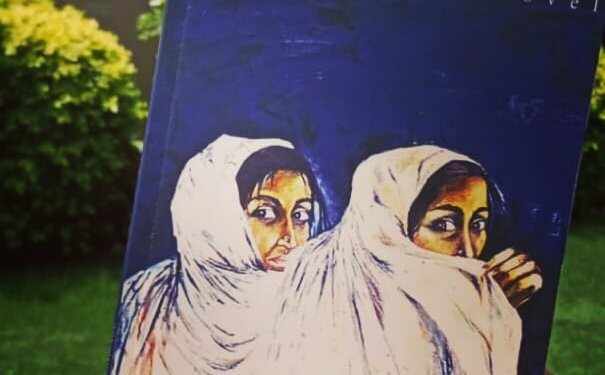Tehmina Durrani is Pakistan’s one of the most talked about personality. You might not have seen her on your television screens so often but she remains an important persona specially after her debut “My Feudal Lord” which was a best-seller throughout the world. She is an outstanding storyteller, while her tales do not deal with fantasies neither they are thrillers but they are rampant in exposing the social truths that are always kept hidden or are buried deliberately by us.
Blasphemy is an awe-inspiring attempt of Durrani, published in 1998, which shatters the false fundamentals that stand in the way of Islamic teachings. It is a well-weaved tragedy of ‘Heer’, that a lot like her name, is a real Heer, wanting to unite with her Ranjha. There are love songs, there are childhood memories, there is beautiful summer with all its sweetness and ripeness, there are people who love Heer, her own people, her family, her widowed mother, and then there is ‘Pir saen’ almost eighteen years older than Heer. He is a Holy man, who never goes out without draping a veil on himself which reads the Ninety-nine names of Allah, who never lets his women out of his haveli due to purdah and is a master of a shrine of a village.
When heer turned fifteen, she saw a glimpse of love in Ranjha. Pure love. Love that has no trace of lust in it. But that was just a glimpse. In a matter of week, she is married off to Pir saen on his wish, which according to her widowed mother is a blessing that has fallen upon them by Allah. After all, her mother has other burdens of two other daughters and a son. While heer, having just fallen in love with Ranjha, becomes helpless on her mother’s expense and gives in. The night when she enters in her bridegroom’s haveli, is the night that announces the lifelong destruction of her life. Her teenage fantasies are blown up on facing her husband, the pir saen, the master of the shrine. It reveals on her that the man who claimed to be the holiest of the man, the man who has power over a many great population, a man who is worshipped by a many great population, is a horrendous devil, a murderer of many, rapist of a dozen girls and a tormenter of the women inside his house.
‘I knew the exact timing of the moon’s arrival and the exact time when the sunset. The seasons had played games of color and desolation in the rebellious tree for twenty-five years. Overhead I could count how many clouds could fit into the patch of sky at one time. I had always wished that the tree would multiply into thousands, that the space above would widen into different skies and that I might sprout wings to fly away into the big world’ (Heer)
Heer’s fate takes twisting turns, her never ending ordeals, the punishments and unbearable madness sends her mind in illusions to take flights outside the haveli, her longing to leave the haveli is always so strong as this place is a living hell for her, for the maidservants and all the women and girls inside, it never was a home.
A home is a place where you feel safe and secure, here no one was.
Every one of them knows the truth that the master uses God’s name for his foul play but no one dared to open their mouth. Yet Heer was adamant that she will expose the truth about her master, that what a devil he was in real. And after all the seemingly endless tribunals she went through, she did at last put an end to it. How she did it? What happened to pir saen? Do people still come to the shrine and worship it? Find out the answers in this most tragic story.
It becomes inevitable to put down this book when you are progressing towards the climax. It is the reflection that how the Islamic clergy is corrupt in our society. Not only in Pakistan but rather a greater part of South Asia, the crimes like, rape, child abuse, honor killing, child marriage and prostitution are widespread. A question here arises that how it becomes a matter of blasphemy when someone tries to know the wrong one wrong and not the right. Instead those people are shushed away or rather shut down when they rise suspicions over the illogical traditions.
Blasphemy is a critical comment on the challenges faced by Muslim women in a Muslim society. It is not a comment upon Islam rather it’s an attempt to fight whatever stands in the way of Islam.





